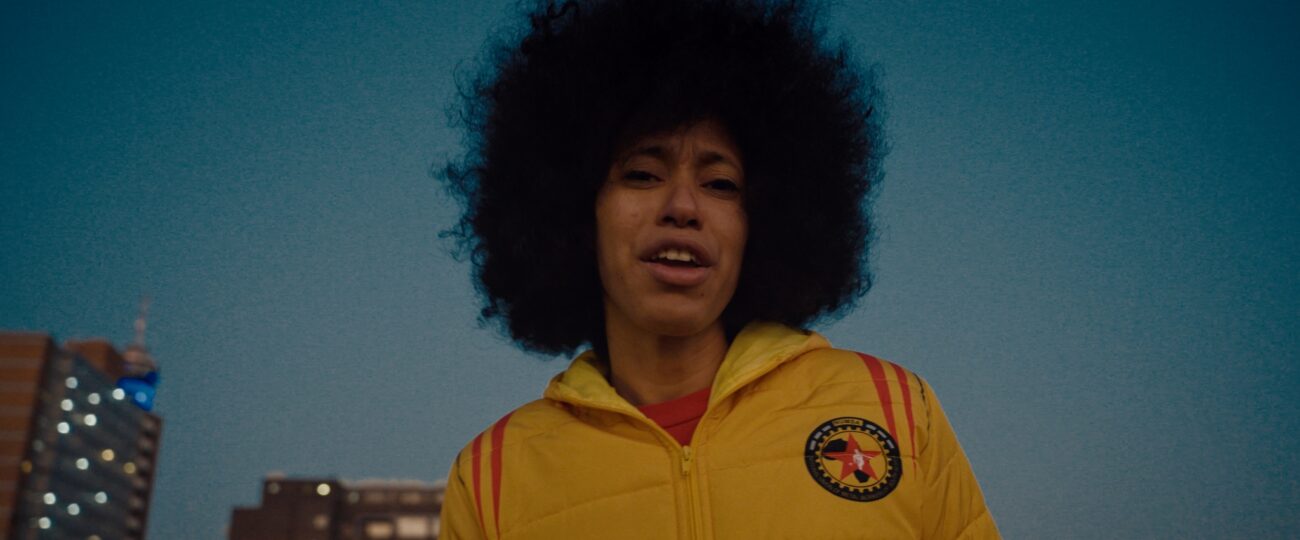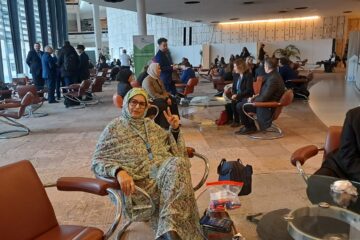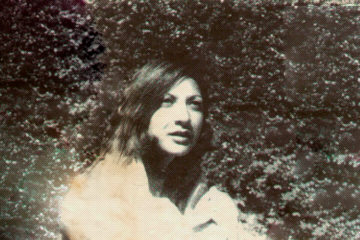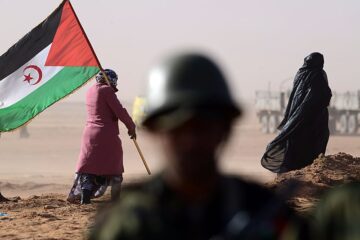Mariah Parker, also known as Linqua Franqa, is a hip hop artist, cultural worker, songwriter, and emcee, currently residing in Atlanta, Georgia, in the United States of America. The artist is working with music for seven years now, and have started from the desire of reinventing themself. Mariah’s latest album was released in 2022.
The title track of the album, Bellringer, is a song that pays tribute to Latasha Harlins, a 15-year-old that was shot in the back of the head by the owner of a grocery shop in 1991, In Los Angeles, USA. That event was one of the genesis of the LA Riots of 92, a series of uprisings and riots against racist brutality against Black people and other minorities, and police impunity. “When people think of the LA Riots, they think of Rodney King that got beaten by the cops, but the death of Latasha Harlins is often forgotten as one of the things that sparked this crazy uprising in the city”, Mariah explains. The song captures that moment, lifting her memory and the riots inspired by her, and to remember all of the Black women who die meaninglessly by saying “if I die, don’t pray, riot!”.
Besides their music, Mariah is a cultural worker, commited to making music and art something that brings people together. When they started, in 2013, the process of organizing hip hop shows in Athens, Georgia, a mainly white city, represented a political activity that break down racial barriers. Mariah shares that “music genres didn’t mix. We didn’t have hip hop shows at all, white people weren’t used to going to these shows or had misconceptions about the hip hop community. So the goal was to bring those cultures together through those events with the intention of disrupting some of that racial segregation that still remained”.
Listen to the full album here:
Art in and for the struggle
To Mariah, facing the capitalist, racist and patriarchal system can make us feel alienated, alone, tired, depressed, that’s why they believe that it is important to encourage joy and connection between people through art. With art, we can “create moments where we’re break out of our alienation, we’re together, and we remember that joy is possible and that’s the world that we’re trying to build, a joyful world. Especially for the sustainability of struggle because it’s really hard. We have to have those moments where we’re just able to be alive and be human”.
The art is even more powerful if the struggle can be mixed into it. “We are celebrating, but we’re also celebrating struggle”, they defend. During the pandemic, Mariah started to make more music as a way to process what was on the news, combined with political theory and grassroots struggles. Videos and performances published on-line represented these work, as they joke, “I’m not saying you have to organize your coworkers and go on strike, but here’s this cool idea that you might consider. I use music for that too.” Besides Mariah’s work as Linqua Franqa, they are part of the Union of Southern Service Workers (USSW), organizing fast food workers across the South of the U.S., and are in the struggle to end police supremacy in the Stop Cop City campaign.
___
Mariah and many other artists around the world are on the streets and demonstrating solidarity through their art with the Palestinian struggle, and against the Israeli occupation of Palestine and the war in Gaza.




